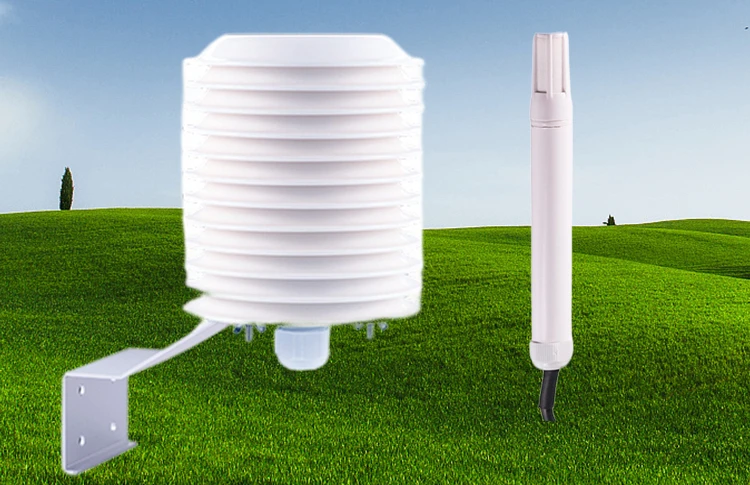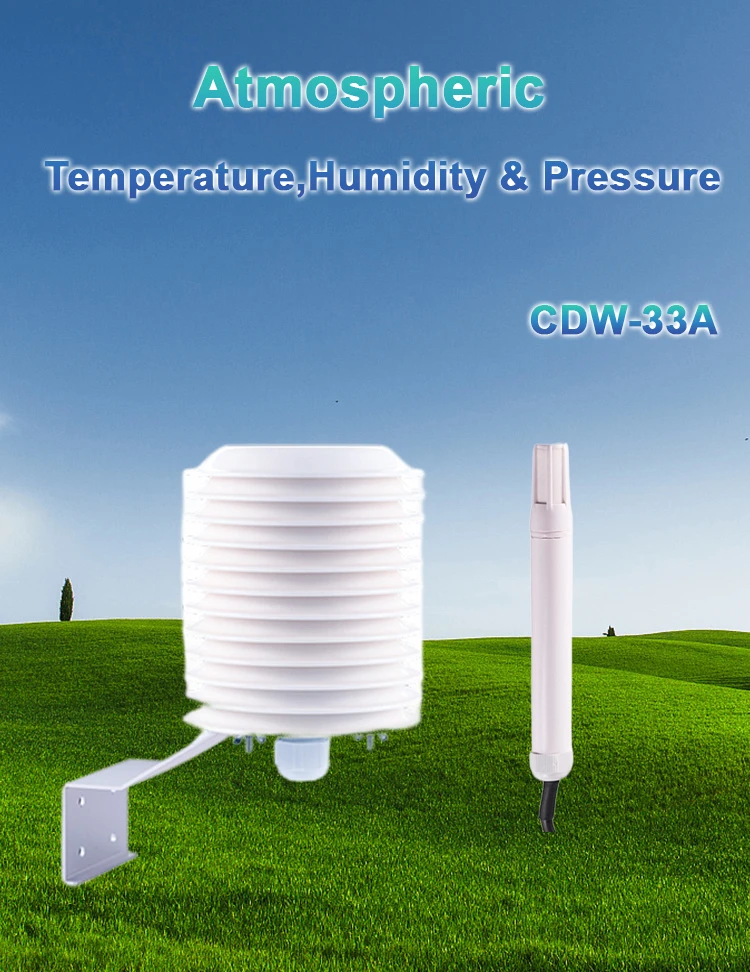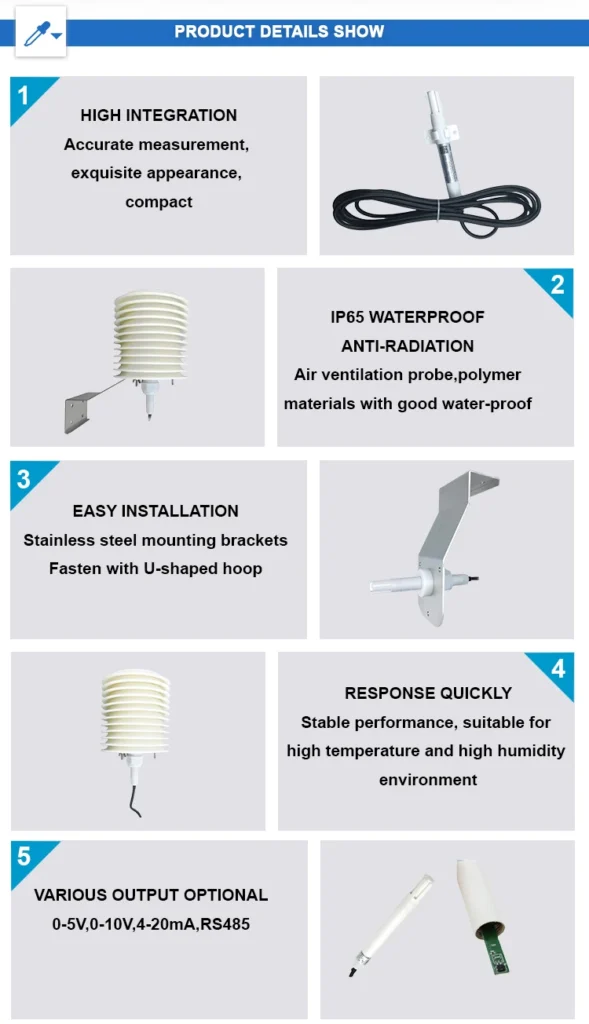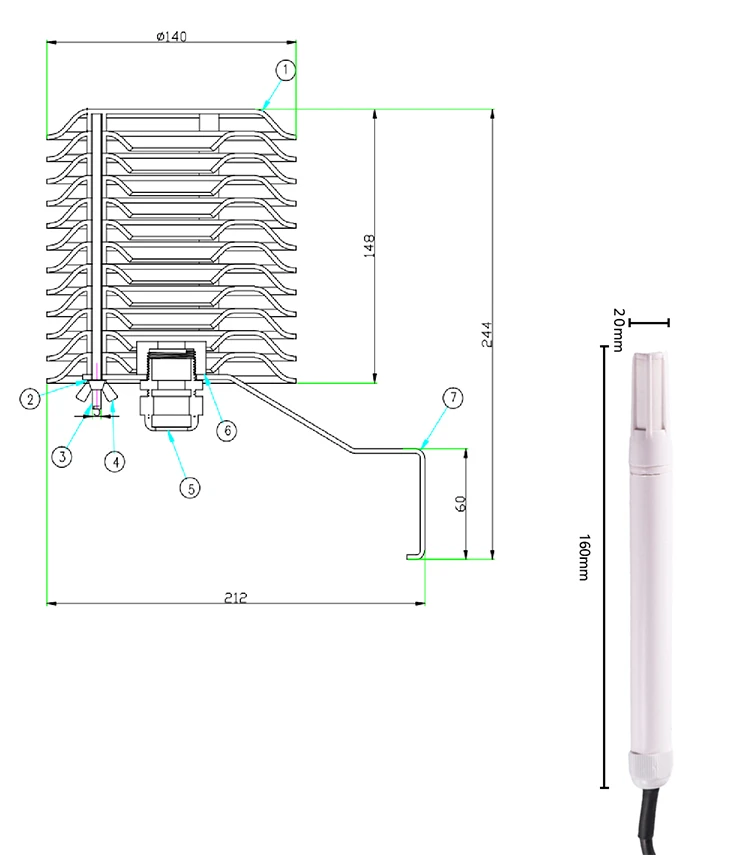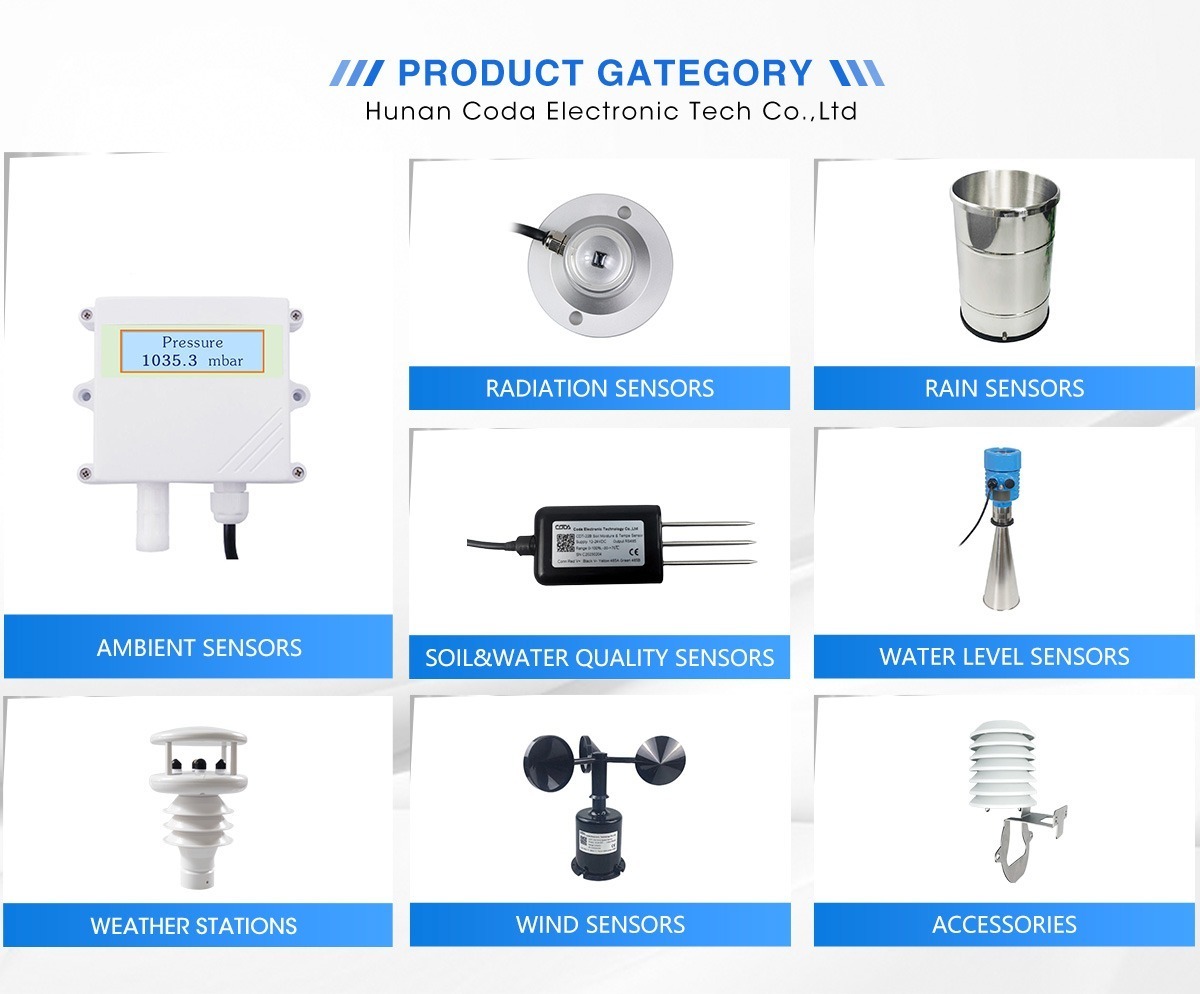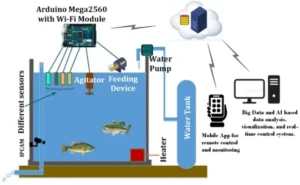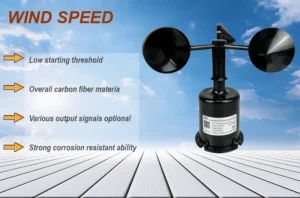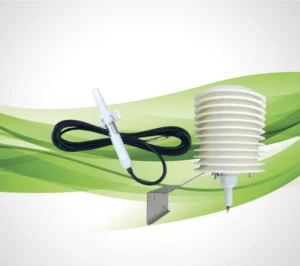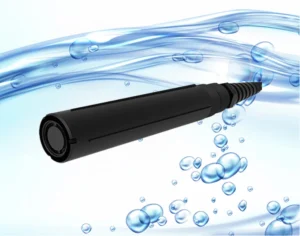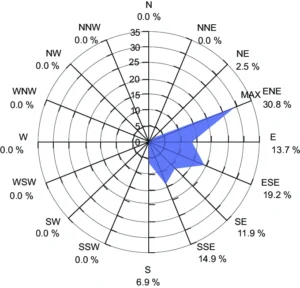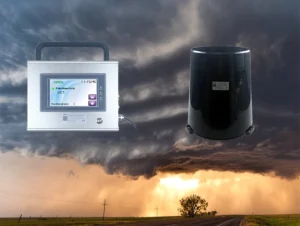Applications of Temperature and Humidity Sensors
What are Temperature and Humidity Sensors?
Temperature and humidity sensors are devices designed to measure both the temperature and humidity levels within a specific environment. These sensors use temperature-detecting parts, like thermocouples or thermistors, along with humidity-measuring elements. These elements can be capacitive or resistive sensors. They can work alone or as a combined system. They work by changing physical amounts like temperature and humidity into electrical signals. This allows for data collection, display, analysis, and connection with other systems like microcontrollers or data loggers.
These sensors have broad applicability across various domains including agriculture, industry, meteorology, environmental monitoring, building management, food storage, healthcare, home automation, and more.
Working Principle
Temperature sensors work by detecting changes in resistance or voltage caused by variations in temperature. Common types include thermocouples, thermistors, and resistance temperature detectors (RTDs). Humidity sensors, on the other hand, may be capacitive (measuring variations in dielectric constants), resistive (measuring humidity’s effect on resistance), or dewpoint-based. Together, these mechanisms allow real-time monitoring and control of environmental conditions.
Key Applications
1. **Agriculture**
Temperature and humidity sensors play a vital role in agricultural operations to optimize environmental conditions for crop growth:
– Monitoring greenhouse environments to maintain optimal temperature and humidity levels for crops.
– Integrating with irrigation systems to adjust watering based on soil moisture readings.
2. **Industry**
Industries such as electronics manufacturing, pharmaceuticals, and printing rely on stable environmental conditions for quality products:
– Ensuring consistent workshop conditions to maintain product quality and safeguard equipment operation.
– Monitoring cold chain logistics to preserve product integrity during storage and transport.
3. **Meteorology**
In weather forecasting systems, these sensors provide precise measurements of atmospheric temperature and humidity for more accurate predictions:
– Used in weather stations and radar systems for real-time data collection.
4. **Environmental Monitoring**
Temperature and humidity sensors support conservation efforts by providing critical data on ecological conditions:
– Observing changes in forests, grasslands, or nature reserves to evaluate their health and detect potential threats.
5. **Building Management**
Integrated into HVAC systems, these sensors ensure energy-efficient climate control in residential or commercial buildings:
– Optimizing air conditioning and humidification for comfortable indoor conditions while lowering energy consumption.
6. **Food Storage and Transportation**
Maintaining temperature-sensitive environments is crucial to ensuring food safety:
– Monitoring warehouse conditions to prevent spoilage or damage to goods.
– Safeguarding freshness during transportation through continuous environmental checks.
7. **Healthcare**
Healthcare institutions rely heavily on precise environmental parameters for medical storage and operations:
– Ensuring pharmaceuticals and biological samples remain safe by monitoring storage conditions.
– Maintaining optimal temperature and humidity levels in hospital operating rooms, laboratories, and patient wards.
8. **Home Automation**
Smart home systems integrate these sensors to enhance indoor comfort automatically:
– Adjusting air conditioning or humidification settings based on real-time environmental fluctuations.
9. **Server Rooms**
Data centers depend on temperature and humidity sensors to maintain the stability of critical equipment:
– Preventing overheating by monitoring server temperatures.
– Minimizing static hazards through regulated humidity levels.
10.**Intelligent Agriculture**
Advanced agriculture systems utilize temperature and humidity sensors to track the environmental conditions of farmland and soil. This data supports precision agriculture by optimizing irrigation and fertilization processes.
Summarize
Temperature and humidity sensors are important in many areas of modern life. They help with farming, ensuring product quality, improving the environment, and advancing scientific research. These tools allow for real-time monitoring and control of environmental conditions. This improves the performance of different systems and devices. As Internet of Things (IoT) technology grows, developers will create more uses for these sensors. This will bring more convenience and efficiency to everyday life and work.
